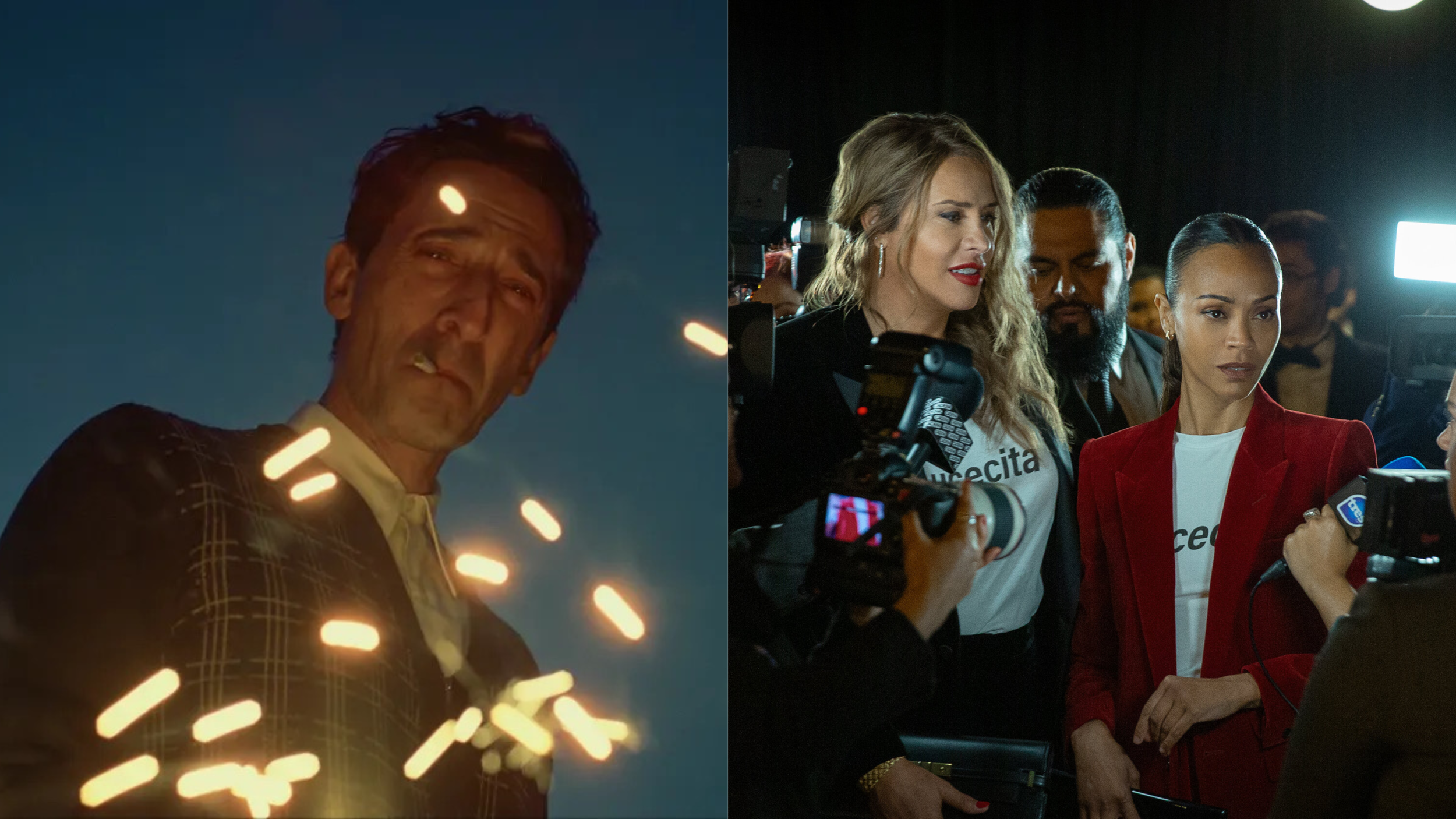Oscars Consider Requiring Films to Disclose AI Use Amid Growing Controversy
A24, NETflix
AI in This Year’s Best Picture Contenders:
The Brutalist & Emilia Pérez
As artificial intelligence continues to make inroads into Hollywood, the Academy of Motion Picture Arts and Sciences is actively considering new rules that would require filmmakers to disclose AI use in Oscar-submitted films. This potential rule change comes amid growing controversy over the use of AI in this year’s Best Picture contenders, including The Brutalist and Emilia Pérez.
Currently, the Academy offers an optional AI disclosure form, but according to sources, Governors and Branch executive committees are now exploring ways to make disclosure mandatory, starting with the 2026 Oscars. The Academy’s SciTech Council has been tasked with drafting recommended language for these new regulations, with official rule updates expected in April.
The decision follows heightened scrutiny over AI’s role in post-production, visual effects, and sound design. The revelations about The Brutalist and Emilia Pérez using AI in their respective productions sparked industry-wide debate on transparency, artistic integrity, and the ethical implications of this technology’s growing presence in filmmaking.
The Brutalist: AI and the Art of Post-Production
Brady Corbet’s The Brutalist, starring Adrien Brody and Felicity Jones, became a flashpoint in the AI debate after it was revealed that the film had used AI technology in post-production. According to Corbet, the AI audio tool Respeecher was used exclusively for refining Hungarian-language dialogue. The director assured critics that the performances from Brody and Jones remained “completely their own” and that no English dialogue was altered.
However, concerns remain about how even minor AI applications could set precedents for larger, more invasive uses. While Respeecher’s involvement in The Brutalist was limited, some industry professionals worry that failing to set clear disclosure rules now could open the door to AI being used in ways that fundamentally alter performances without audiences—or even Oscar voters—being aware.
Emilia Pérez: AI in Music and Sound Design
Similarly, Emilia Pérez, directed by Jacques Audiard, faced scrutiny for its AI-assisted sound design. The film, which blends musical and crime drama elements, used Respeecher in its post-production process and incorporated another AI tool, AudioShake, to isolate vocals from legendary opera singer Maria Callas’ 1960s recordings. These recordings were then remixed for the film, raising ethical questions about repurposing the voices of deceased artists.
While using AI to enhance audio is not new, Emilia Pérez highlights how AI tools can increasingly be used to manipulate, edit, and recontextualize performances. This has led to broader discussions about consent, particularly in cases where AI-generated content involves artists who are no longer alive.
How AI Is Changing Hollywood: From VFX to Performance Enhancement
The controversies surrounding The Brutalist and Emilia Pérez are not isolated incidents. Several other high-profile films have incorporated AI-driven tools, including A Complete Unknown, Dune: Part Two, and Furiosa: A Mad Max Saga.
• De-Aging and Face Replacement: AI-powered tools such as Rising Sun Pictures’ Revize have been used for facial performance modification, de-aging, and body replacements in films like Furiosa, Deadpool & Wolverine, and A Complete Unknown.
• Machine Learning for Color and Effects: AI played a role in Dune: Part Two, where a machine learning model automated the process of applying the signature blue tint to the eyes of the Fremen, saving hundreds of hours of work.
• Digital Recreation of Actors: AI tools have been used to bring the likeness of deceased actors back to life, such as Richard Carter in Furiosa and Ian Holm in Alien: Romulus.
While AI undeniably offers filmmakers powerful new tools, the growing difficulty in distinguishing between human artistry and machine-generated enhancements has made transparency a priority for industry professionals and Academy members alike.
The Push for AI Disclosure: What It Means for the Oscars
With AI’s influence expanding across nearly every facet of filmmaking, Academy members are increasingly calling for transparency. One anonymous member of the VFX branch emphasized that “awards decisions should be made knowing what the human artist did to achieve the results.”
By requiring filmmakers to disclose AI use, the Academy would be taking a significant step toward maintaining artistic integrity while also fostering innovation. Rather than banning AI outright, the goal would be to ensure that Oscar voters—and audiences—understand the role these technologies play in shaping the final product.
While some argue that AI is simply another tool, akin to CGI or motion capture, others worry that without proper regulation, AI could be used to replace human labor, manipulate performances without actors’ consent, or even mislead audiences about what they’re watching.
The Academy’s upcoming decision on AI disclosure requirements will likely shape how the industry approaches this technology moving forward. If the rule change is implemented, the 98th Academy Awards could mark the first time that every Best Picture contender is required to openly state whether and how AI was used in its production.
With AI continuing to blur the lines between digital and human artistry, one thing is clear: the conversation is only just beginning.
THE CINEMA GROUP - YOUR PREMIER SOURCE FOR THE LATEST IN FILM AND ENTERTAINMENT NEWS. FOLLOW US ON SOCIAL MEDIA @THECINEMAGROUP









![Sundance 2026 Recap [Part i]
Another Sundance in the books. Last one in Park City— premieres, portraits, and the people who made it.
More to come!
📸: @jonathanpmoustakas on @sonyalpha
#sundancefilmfestival #sundance2026 #thecinemagroup](https://images.squarespace-cdn.com/content/v1/65c1a54efb10480185732c60/1770112011067-GAUJ8WUARIG299C1YW9J/image-asset.jpeg)